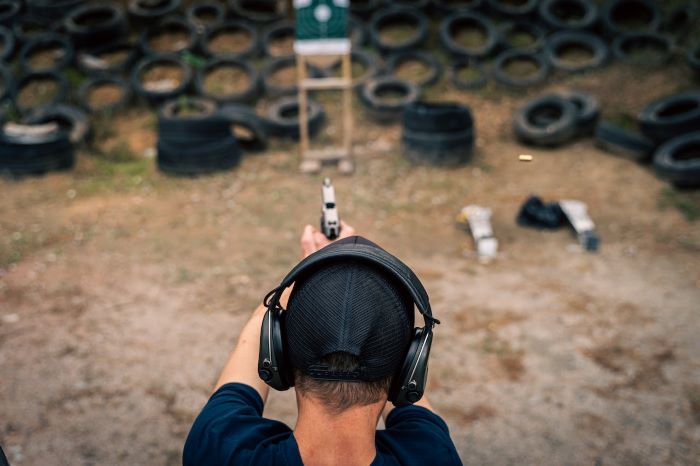When it comes to hunting and recreational shooting, selecting the right ammunition is as crucial as choosing the right firearm. Whether you are a seasoned hunter tracking big game or a recreational shooter honing your skills at the range, understanding the nuances of different types of ammunition can significantly enhance your shooting experience. Here, our aim to provide hunters and recreational shooters with essential information on how to select the appropriate ammunition that suits their specific needs.
Understanding Ammunition Basics
Before diving into the specifics, it’s important to understand the basic components of ammunition: the bullet, casing, powder, and primer. The type of bullet, the amount and type of powder, and the primer’s quality all play vital roles in the performance of the ammunition.
- Bullet Types and Their Purposes
- Full Metal Jacket (FMJ): Commonly used for target shooting and practice, FMJs are designed for reliability and cost-effectiveness. They are not typically used for hunting as they do not expand upon impact.
- Hollow Point: Designed to expand upon impact, hollow points are ideal for hunting as they ensure a quick, humane kill by causing significant damage to vital organs.
- Soft Point: These bullets offer a middle ground between FMJ and hollow points. They expand more than FMJ but less than hollow points, making them suitable for medium-sized game.
- Caliber Considerations
- The caliber of ammunition must match the firearm. Using the wrong caliber can be dangerous.
- For small game, calibers like .22LR or .17HMR are often sufficient.
- For larger game, such as deer or elk, larger calibers like .308 Winchester or .30-06 Springfield are recommended.
- Ballistics and Performance
- Understanding ballistics, the science of how ammunition behaves during flight, is key. Factors like velocity, energy, and trajectory should be considered.
- Higher velocity rounds are generally more accurate and have flatter trajectories, important for long-range shooting.
Selecting Ammo for Hunting
When selecting ammunition for hunting, consider the game you are pursuing. Different game requires different ammunition for an ethical and effective hunt.
- Small Game
- For smaller animals like rabbits and squirrels, .22LR or .17HMR are excellent choices. These calibers offer enough power for a clean kill without causing unnecessary damage to the meat.
- Medium Game
- Deer, hogs, and similar-sized game require rounds that offer a balance of stopping power and precision. Calibers like .243 Winchester, .270 Winchester, or .30-30 Winchester are popular choices.
- Large Game
- Hunting larger game such as elk or moose demands high-caliber rounds like .300 Winchester Magnum or .338 Lapua. These calibers provide the necessary power to penetrate thick hide and reach vital organs.
Ammunition for Recreational Shooting For recreational shooters, the focus is on precision, reliability, and cost-effectiveness.
- Target Shooting
- FMJ rounds are commonly used due to their affordability and consistency. Calibers like 9mm for handguns or .223 for rifles are popular.
- For long-range target shooting, more specialized rounds like the 6.5 Creedmoor offer superior accuracy and a flatter trajectory.
- Plinking
- “Plinking,” or informal target shooting, often uses less expensive ammo like .22LR, which provides a fun and cost-effective shooting experience.
Considerations for Ammunition Storage and Care
Proper storage and care of ammunition are crucial for safety and performance. Keep ammo in a cool, dry place, away from moisture and extreme temperatures. Regularly inspect your ammo for any signs of corrosion or damage.
Legal and Ethical Considerations
Always be aware of local, state, and federal regulations regarding ammunition. Ethical considerations should also guide your choice, ensuring that the ammunition is appropriate for the game being hunted, to ensure a quick and humane kill.
Conclusion:
Choosing the right ammunition for hunting and recreational shooting involves understanding the basics of ammunition, considering the specific requirements of the activity, and being mindful of legal and ethical considerations. By selecting the appropriate ammo, shooters can ensure safety, effectiveness, and enjoyment in their shooting pursuits. Remember, responsible shooting is not just about the gear but also about understanding and respecting the sport and its impact on the environment and wildlife.


